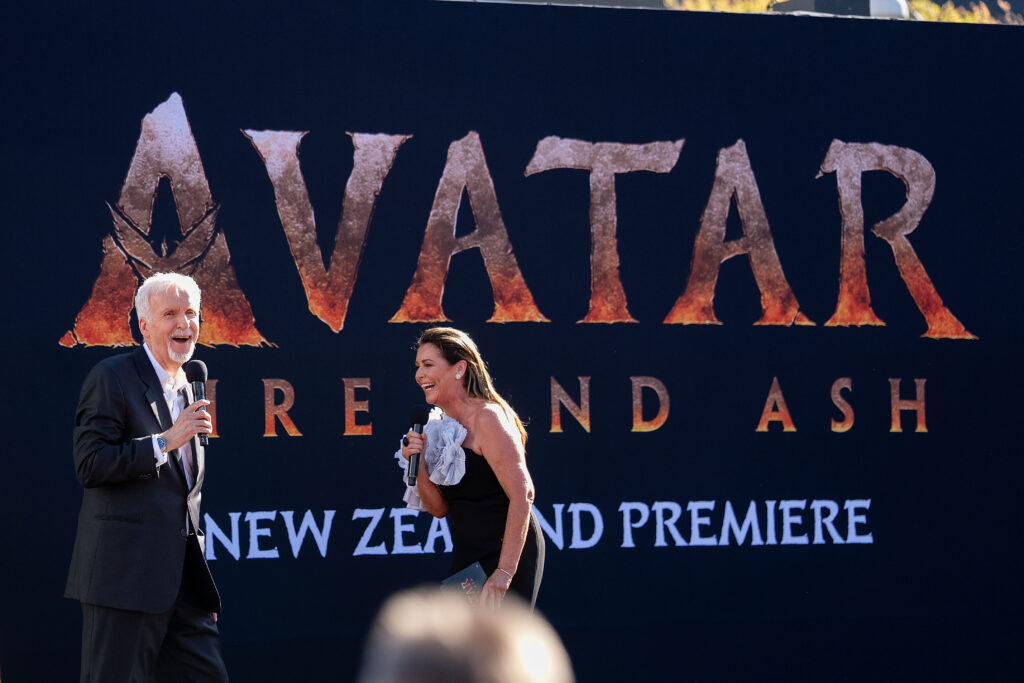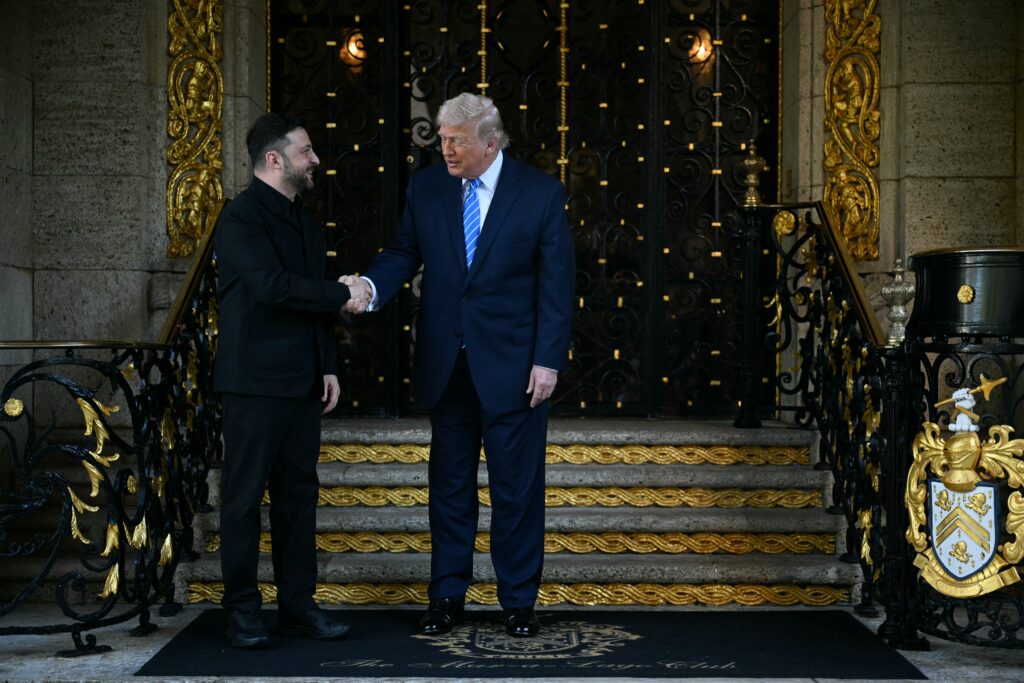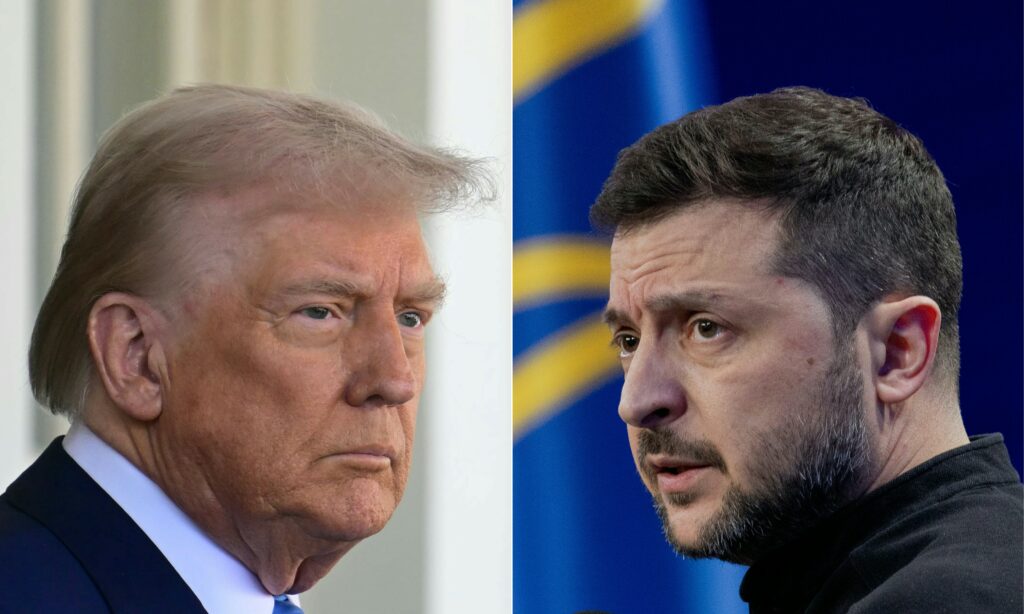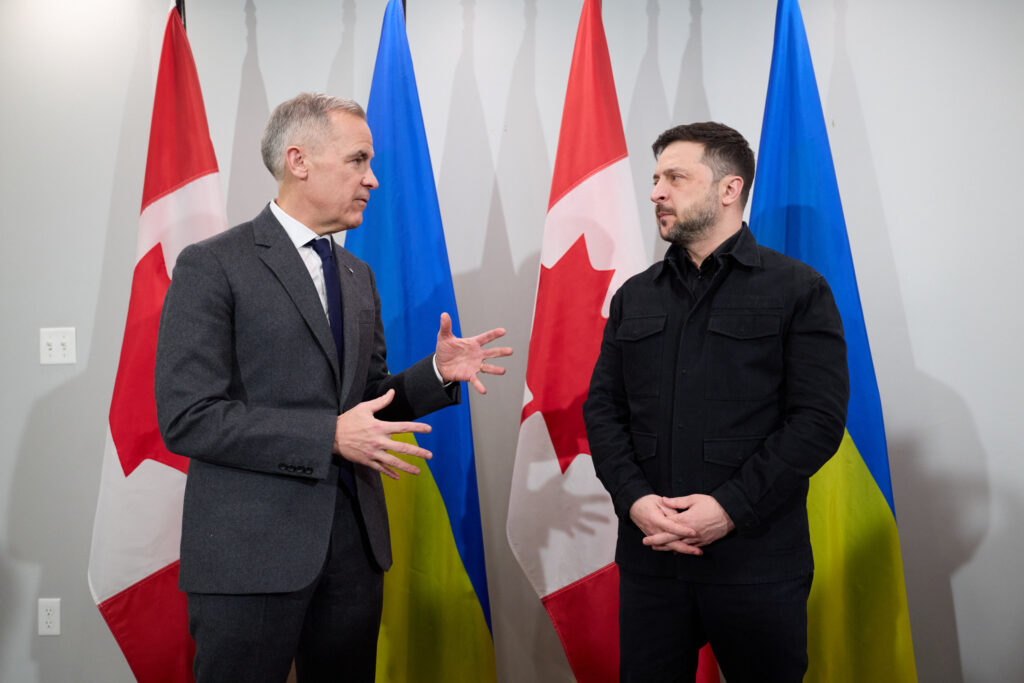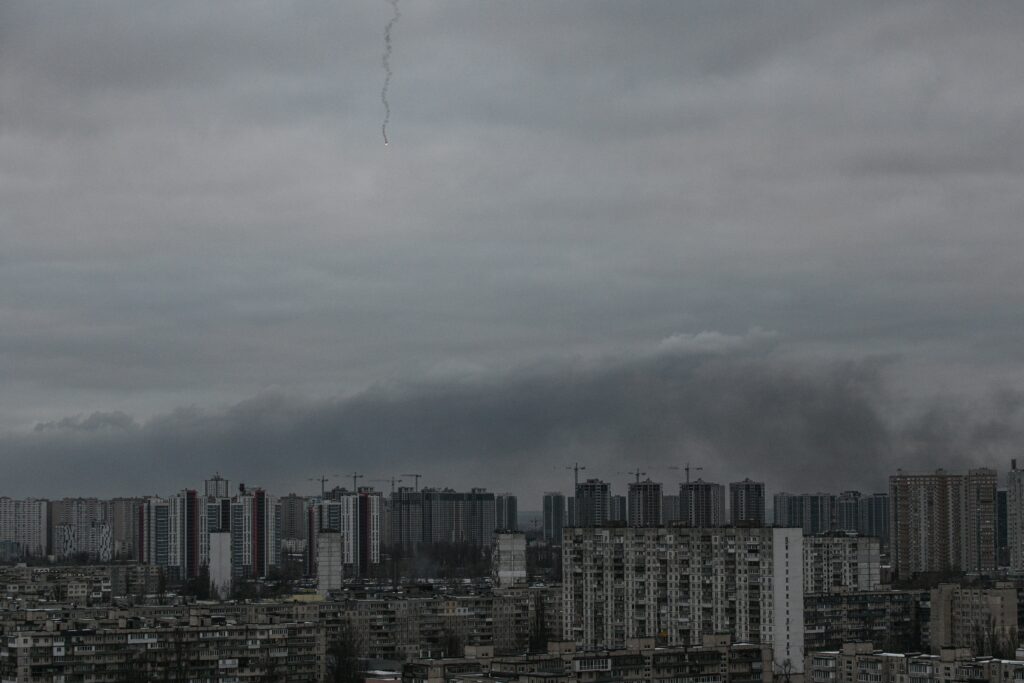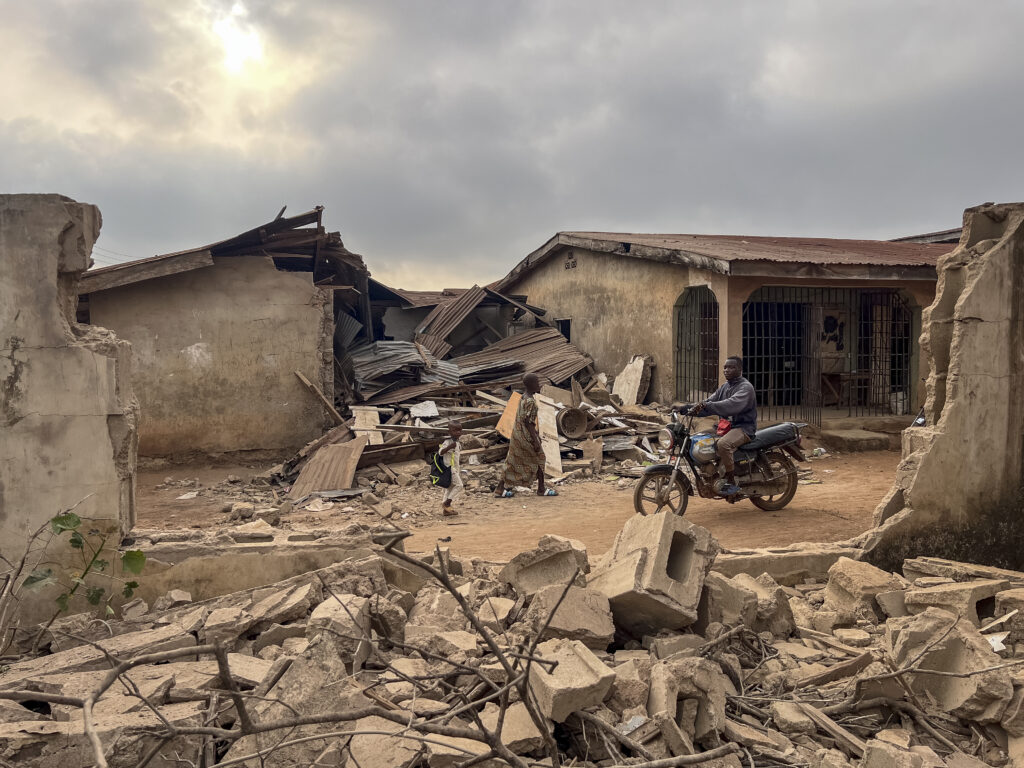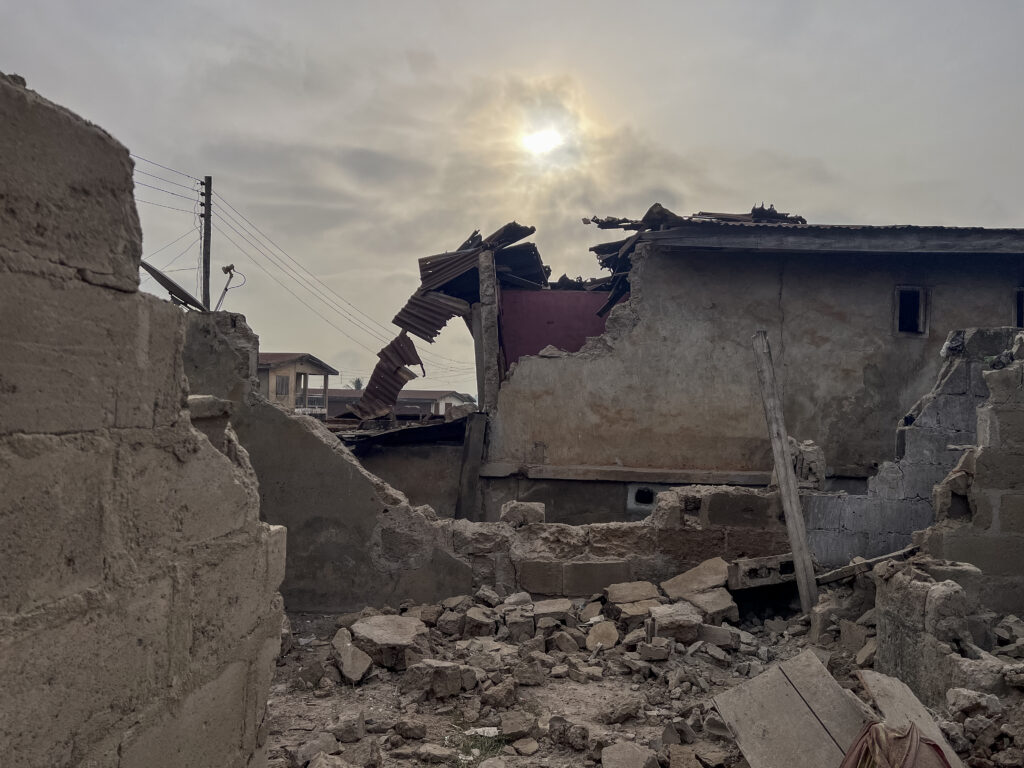Ukraine’s President Volodymyr Zelensky arrived in Canada Saturday for talks on his way to a meeting with US President Donald Trump, hours after Russia pummelled Kyiv with drones and missiles in its latest attack on the capital.Later Saturday, Russia also claimed fresh gains on the ground with the capture of two towns at different spots along the frontlines.Zelensky said the Russian onslaught showed Moscow had no intention of ending the invasion it launched in February 2022 and which has killed tens of thousands of people.Before scheduled talks with Trump in Florida on Sunday, Zelensky met in Halifax with Canadian Prime Minister Mark Carney, who said the latest Russian attack underscored the need to stand by Ukraine.”We have the conditions… of a just and lasting peace, but that requires a willing Russia, and the barbarism that we saw overnight… shows just how important it is that we stand with Ukraine,” said Carney.Russia has accused Ukraine and its European backers of trying to “torpedo” a previous US-brokered plan to stop the fighting.Adding to pressure on the battlefield, Russia announced on Saturday it had captured two more towns in eastern Ukraine, Myrnograd and Guliaipole.”If the authorities in Kyiv don’t want to settle this business peacefully, we’ll resolve all the problems before us by military means,” Russian President Vladimir Putin said Saturday.- ‘They do not want to end the war’ -The overnight barrage of drones and missiles targeting Kyiv killed two people, wounded dozens and cut power and heating to more than a million of the region’s residents during freezing temperatures, Ukraine authorities said.Some 2,600 residential buildings were hit in the attack, as well as more than 300 schools, pre-schools or social services buildings, said Kyiv mayor Vitaliy Klitschko.Zelensky said some 500 drones and 40 missiles had pounded the capital and its surrounding region.”Russian representatives engage in lengthy talks, but in reality, Kinzhals (missiles) and Shaheds (drones) speak for them,” he said.”They do not want to end the war and seek to use every opportunity to cause Ukraine even greater suffering,” he added. During the Russian onslaught, which lasted 10 hours, AFP reporters in Kyiv heard loud explosions, some accompanied by bright flashes that turned the sky orange.The Russian army said it used hypersonic missiles and drones to target infrastructure and energy facilities used by Ukraine’s military, as well as military sites. Neighbouring Poland, a NATO member, scrambled jets and put air defences on alert during the attack, its military said on social media.Just as Zelensky flew out of the country, Ukraine’s anti-corruption agency announced a new probe which it said implicated some MPs.- ‘Security guarantees should be strong’ -Sunday’s meeting in Florida is to focus on a new, 20-point plan that would freeze the war on its current front line. It could require Ukraine to pull back troops from the east, allowing the creation of demilitarised buffer zones, according to details revealed by Zelensky this week.The new plan, formulated with Ukraine’s input, is Kyiv’s most explicit acknowledgement yet of possible territorial concessions.It is a marked departure from an initial 28-point proposal by Washington last month that adhered to many of Russia’s core demands.Trump, speaking to news outlet Politico on Friday, said of Zelensky’s plan that “he doesn’t have anything until I approve it”. He added: “So we’ll see what he’s got.” Part of the plan includes separate US-Ukraine bilateral agreements on security guarantees, reconstruction and the economy.Zelensky said those were changing daily. “As for sensitive issues, we will discuss (the eastern region of) Donbas and the Zaporizhzhia nuclear power plant,” he added.Zelensky was to brief EU allies after his meeting with Carney.Zelensky added Saturday that the aim of the Florida talks was to reduce unresolved issues to a minimum.”Of course, today there are red lines for Ukraine and Ukrainian people. There are compromise proposals. All of these issues are very sensitive,” he said on X.Meanwhile, Ukraine needed European and US support to acquire weapons and funds, both of which were insufficient, Zelensky said — “in particular for the production of weapons and, most importantly, drones”.In negotiations, Ukraine’s “most important consideration — if we take certain steps — is that security guarantees should be strong and we should be protected”, he said.Ukraine is working with the US on a roadmap for the country’s reconstruction, said Zelensky, which will require between $700 billion and $800 billion.
